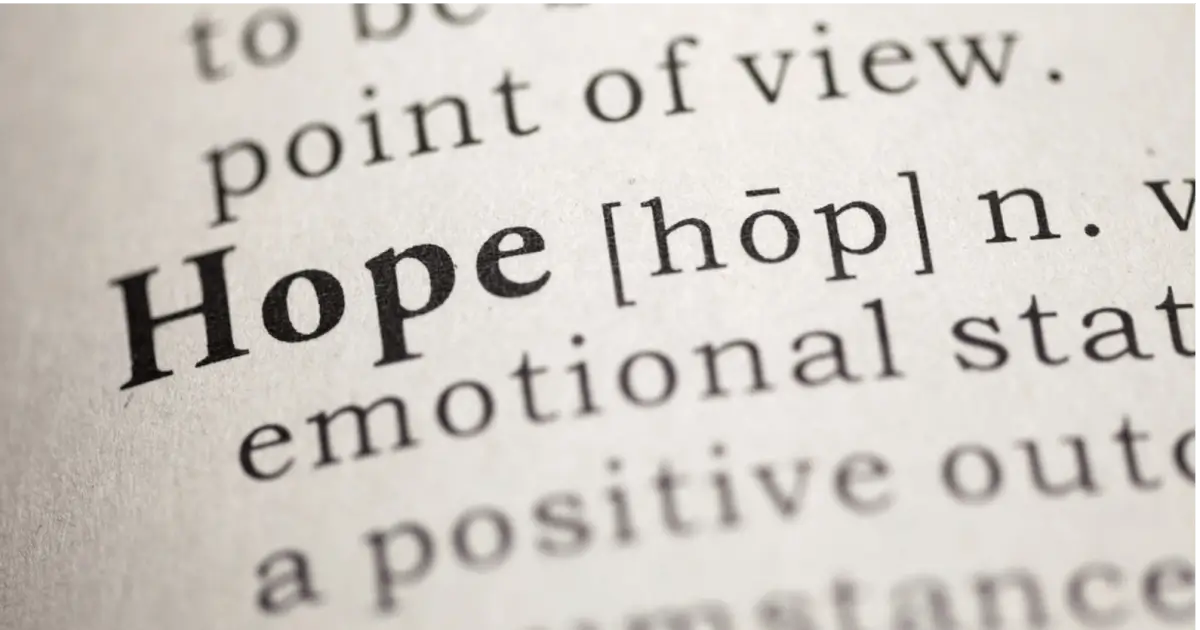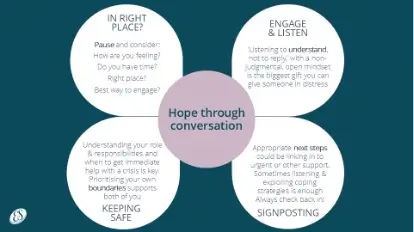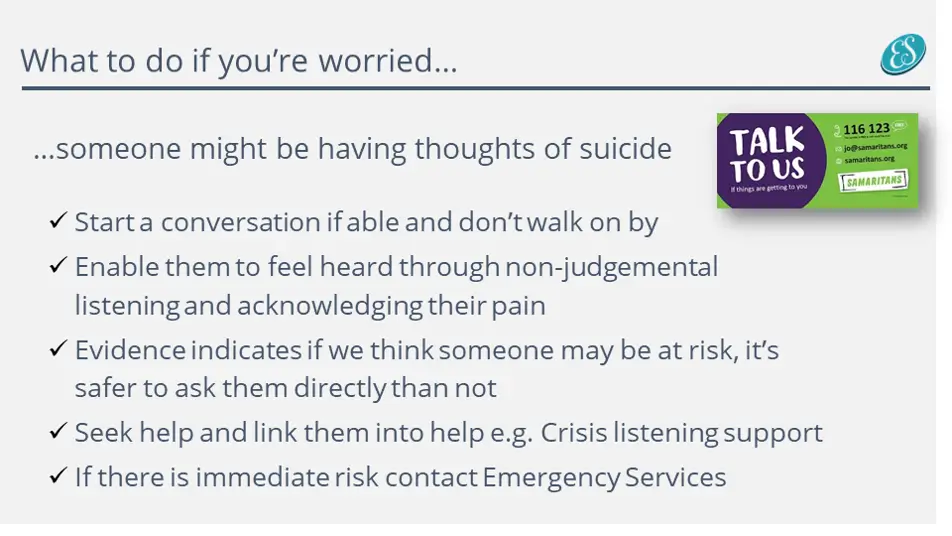

Life is tough at the best of times and full of messy reality, a phrase I use a lot, so what do I mean? Quite simply what brings us joy and purpose, can also bring us pain and complexity (our loved ones, our work, volunteering, our hobbies...).
I won't get all philosophical, it's the nature of the human condition! I will just add I love promoting this 'Both...and' concept (both joy and pain) because once we accept and embrace it, we can learn and grow from life's tough resilience journey.
Of course, 21st century life with its 24 hour noise and FOMO, polarisation, cost of living...it all adds to the intensity, and who knew AI would be in the mix too??
And that's without mentioning how this complexity all plays out in the workplace in the post-pandemic hybrid workplace: ever increasing change and fear, more work, less resources, teams stressed out and overwhelmed or feeling unsupported, managers feeling like the ‘squeezed middle’ lacking in confidence, frustrated even overcompensating with micro-managing? I could go on! Even in a workplace where you feel valued, home or work stuff and the modern world can get on top of you.
As complexity deepens I’m all about getting back to what it is to be human. Let's build confidence to have simple yet profound conversations where we better look out for one another in a way that supports others and ourselves. Before I introduce my simple framework, here are some considerations.
So much we could cover here, the key is when you notice that your colleague, loved one, neighbour doesn’t seem themselves e.g. low mood, agitated, loss of humour, it’s time to ‘check-in’.
I like to share how logical it is to reach out for support, it's all part of a toolkit for managing messy reality. Obviously, so much can hold us back including stigma and fear. It's not just unhelpful narratives all around us, it's the unhelpful messages we absorb and re-tell ourselves like 'Man-up', 'Don't make a fuss' or 'I don't deserve help.'
There are also genuine reasons to consider carefully who to trust. I explore all this and the power of connection in my blog Taking the first step to finding support.
It's only natural to feel nervous about reaching in, especially if we wrongly assume it entails finding a solution. Another common assumption is that only natural 'connectors' or extroverts will know how to handle such an unknown awkward social interaction. In fact, often more introverted personality types are great at these conversations as they tend to listen more and talk less!
Understanding your role and relevant responsibilities in supporting others is crucial for building confidence. Managers, for example, have a significant influence on their team. A good line manager fosters a supportive environment, while an unhelpful one can exacerbate stress and anxiety. Untrained managers, even with good intentions, can inadvertently store up trouble by not understanding relevant legislation or knowing when to seek expertise.
Our next section, explores a generic list of roles and responsibilities, clarity is key so when I’m delivering training I customise it to reflect actual job roles and it’s why I’m so passionate about Manager training.
Your support role is...
• Listening non-judgementally, be a pressure valve release
• Understanding the impact of challenges on their life
• Intervening early when signs stress & distress
• Exploring & linking to reliable sources support
• Knowing your limits and seeking expertise as appropriate
What your support role isn’t…
× You are not a therapist or 24/7 support (it can get in your head!)
× Avoid assumptions or judgements (it's human to have them so put them aside)
× It's not your role to fix or know everything!
× Beware the ‘righting’ reflex - a drive to want to make everything alright!
Obviously other well-known ‘early intervention’ models are available 😉 and I share these as an accredited MHFA and i-act instructor e.g. ALGEE - Approach Assess Assist, Listen non-judgementally, Give information and support, Encourage professional support, Encourage other support. I’ve created my own to have a visual reminder and framework for my customised training.

Pause and consider: How are you feeling? Do you have time? What and where is the best way to engage?
Conversation openers and guidance in my newsletter Starting a mental health conversation, the key is to be authentic to your relationship.
We grow up being told to listen but are rarely taught how to do it effectively. It's easy to fall into the trap of selective listening, which is listening out for anything that enables us to connect to our own experiences. As humans, we naturally want to make connections with others, which is great for day-to-day conversations.
Be aware, however, that so much of the time, we treat listening like getting ready to cross the road – we're just waiting for gaps in the traffic to say our piece!
Much of the time, we treat listening like getting ready to cross the road – we're just waiting for gaps in the traffic to say our piece!
Steven Covey is the inspiration for the principle of ‘listening to understand not to reply because listening with a non-judgmental, open mindset is the biggest gift you can give someone in distress’.
And why not treat yourself to the iconic Empathy v sympathy video.
Don’t ever underestimate the importance of just being a listening ear, that might be all someone needs to decompress. Being allowed to articulate what’s whirring round and round in our heads can quite literally be lifesaving.
That explains why the Samaritans service is so trusted and successful at helping people in crisis, they are quite simply the ultimate listening service, and their volunteers are highly trained in the art of listening. Check out the Samaritans UK robust support and listening tips.
Appropriate next steps could be linking to urgent, or less urgent support, exploring coping and wellbeing strategies, or perhaps a listening ear is enough The key is to be realistic and respectful about where someone is and don't overwhelm them. Use helpful phrases like 'What kinds of things usually help you cope?' ' Would you like me to help you explore some options?'
As part of this step and the next stage on Safety, it's important to consider how you'll check back in with someone.
Aside from immediate safety issues (see KEEPING SAFE stage below), we can't force someone to seek support or stop unhelpful coping behaviours. Keep in mind...
Our judgement won’t build trust, but our patience, empathy, kindness and compassion will. That could be the seed that encourages them to explore support now or in the future.
Check out my blogs Support and where to find it - there's no one size fits all and Training follow-up resources for inspiration.
When I'm delivering talks and training and in everyday conversation, I encourage everyone:
Understanding your role and responsibilities and when to get immediate help with a crisis is key. Prioritising your own boundaries supports both of you.
Obviously a huge topic worthy of more time, particularly if you're concerned someone is having thoughts of suicide. The Samaritans If you're worried about someone else has a wealth of guidance.

I realise I might have sent you down all kinds of rabbit holes and illustrated the complexity not just the simplicity!! So let's end with a quote and a powerful one-minute video to remember it's not about being technically perfect, more about being human 😊
People will forget what you said, people will forget what you did but people will never forget how you made them feel - Maya Angelou.
A one-minute message:
And when all is said and done, the ultimate responsibility…
…is to look after our own mental health.

Hi, I’m Emma! With 30 years in Learning & Development and varied roles, I specialise in helping workplaces navigate the 'messy reality' of mental health conversations with confidence as part of a broader strategy. My experiences in a range of workplace settings, and as a mental health charity trustee and member of NHS suicide awareness working groups, drive me to provide practical approaches that create real impact. I ensure every session is engaging, down-to-earth, and actionable.
Read More Of My Blogs
Read More Of My Blogs